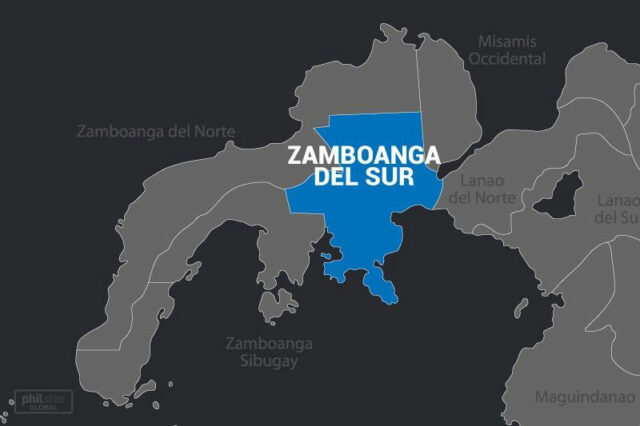On Nov. 11, 1999, the British Parliament established the Greater London Authority. Prior to that, there was no single entity managing the entirety of London. The governance of the city was fragmented, and responsibilities for planning, transport, and other city-wide matters were divided between local boroughs and national authorities.
The Greater London Authority was established in 2000 to represent the interests of Londoners and to direct the future of London, particularly on issues surrounding transport, policing, planning, culture, environment, health, fire and emergency services, and economic planning.
It is a strategic regional authority, with powers over transport, policing, economic development, and fire and emergency planning. Three functional bodies — Transport for London, the Mayor’s Office for Policing and Crime, and the London Fire Commissioner— are responsible for delivery of services in these areas.
Given its broad powers, on July 3, 2000, the Greater London Authority created Transport for London (TfL), a statutory corporation. Under its charter, TfL has been responsible for operating multiple urban rail networks, including the London Underground and Docklands Light Railway, as well as London’s buses, taxis, principal road routes, cycling provision, trams, and river services. The underlying services are provided by a mixture of wholly owned subsidiary companies (principally London Underground), by private-sector franchisees (the remaining rail services, trams, and most buses) and by licensees (some buses, taxis, and river services). Fares are controlled by TfL, rail services fares calculated using numbered zones across the capital.
On March 21, 1995, Republic Act 7924 created the Metropolitan Manila Development Authority (MMDA). The MMDA is tasked with planning, supervising, coordinating, and regulating essential metro-wide services that extend beyond the boundaries of individual local government units, including traffic management, solid waste disposal, flood control, and urban renewal.
The MMDA has a purely administrative function an, unlike the Greater London Authority, has no legislative or regulatory powers.
Thus, in land transportation, the regulatory power in the National Capital Region is still the Land Transportation and Franchising Board (LTFRB). On June 1, 1994, under Department Order 94-795 the LTFRB suspended the acceptance of new applications for public utility buses, jeeps, and taxi services on all routes in Metro Manila.
The impact of this suspension was fully described in my previous column entitled “LTFRB: Cause of Our Traffic Congestion” (BusinessWorld, Feb. 3, 2025). We quote:
“The number of trips of the Public Utility Jeepneys declined by 50% from 193,221 in 2013 to 95,659 in 2023 while the trips by the Public Utility Buses declined by 42% from 36,551 to 21,107.
“Over-all trips by private vehicles increased from 2,280,124 trips in 2017 to 3,349,502 in 2023 or a 47% increase while trips by public vehicles declined from 418,927 in 2017 to 284,731 in 2023 or a 32% decrease. As private vehicles occupy the same space as jeepneys but carry only one or two passengers as opposed to eight to 10 passengers for a jeepney, the result is severe traffic congestion, all as a result of the catastrophic decisions of the LTFRB.”
“The most plausible explanation for the adverse actions of the LTFRB is “regulatory capture.” Regulatory capture occurs when the regulator, in this case LTFRB, is captured by those organizations it is supposed to regulate, in this case the jeepney, bus, and motorcycle operators.
“As a captured agency, the LTFRB serves the interest of the operators rather than the public, in this case the commuters. Clearly by decreasing the franchises and so the public vehicles on the road, the LTFRB serves the interest of the operators since their vehicles will now be filled with overflowing passengers, some hanging on for dear life. On the other hand, commuters want more franchises so there will be enough vehicles to meet their transport needs.
“Lacking adequate public transport, some of our hapless commuters were forced to buy (usually on installment) motorcycles if they were to have any hope of reaching their destination on time. Thus the trips by motorcycles increased from 433,340 in 2013 to 1,674.646 in 2023 for a staggering increase of 286%.
“Despite this response from the commuting public, there is still the problem of commuters who could not afford to buy motorcycles. This was of no concern to LTFRB but was of great concern to the city mayors of Metro Manila.
“They decided to provide the public service that the LTFRB appallingly neglected to provide. The cities of Caloocan, Malabon, Manila, Pasig, Taguig and Valenzuela, started operating public bus services.
“In the case of Pasig, the Pasig Bus Service was started in 2015 to provide free shuttle services from the Pasig City Hall to key drop-off points in the city of Pasig. Pasig City bought it own buses and hired its own drivers.
“In the case of Quezon City, the Quezon City Bus Service was started in 2020 has now 100 buses serving eight routes with the Quezon City Hall as hub. However, instead of providing the service itself, Quezon City subcontracted the operation to Philtranco, Genesis, and Saulog. The rides are also free.
“The city governments had to offer the rides for free since they do not have franchises from the LTFRB. Without the franchise, they cannot operate as a regular bus service. This arrangement has created problems. In addition to the issue of sustainability, the city government is also accused of unfair competition by the private operators.”
For this reason, we argue for the creation through an Act of Congress of the MMDA Transport Authority which will function like the Transport for London, franchising and regulating private vehicles, creating and operating public transport corporations, and planning and implementing a land transportation development plan for the national capital region.
This would mean the devolution of the regulatory powers of the LTFRB in Metro Manila to the MMDA Transport Authority (MTA).
Upon devolution, the MTA will design the Metro Manila Transport Development Plan. The implementation of the plan would involve as in the Transport for London:
1.) The creation or acquisition of transportation subsidiaries;
2.) The setting up of a franchising and regulatory office to grant franchises and licenses as well as determine fares and subsidy schemes like the LTFRB; and,
3.) The setting up of services and facilities office to effectively implement various transportation laws, rules, and regulations like the Land Transportation Office.
We make this proposal for the following reasons:
1.) Given their interest and information on the needs for public transport in their community, the Metro Manila mayors, through the MMDA Transport Authority, are in the best position to be the regulator for local public transport franchises rather than LTFRB;
2.) Given that the regulatory powers will be diffused among the Metro Manila mayors, regulatory capture will be avoided; and,
3.) The MMDA Transport Authority directly and the Metro Manila mayors indirectly can be held accountable when traffic congestion occurs in their locality. At present the critical role of the LTFRB in our present traffic congestion is not even realized by both our government officials and the commuting public.
Dr. Victor S. Limlingan is a retired professor of AIM and a fellow of the Foundation for Economic Freedom. He is presently chairman of Cristina Research Foundation, a public policy adviser and Regina Capital Development Corp., a member of the Philippine Stock Exchange.












![Slipper-belonging-to-Marie-Antoinette,-beaded-pink-silk-[Photo-CCO-Paris-Musées---Musée-Carnavalet-–-Histoire-de-Paris-]](https://www.bworldonline.com/wp-content/uploads/2025/09/Slipper-belonging-to-Marie-Antoinette-beaded-pink-silk-Photo-CCO-Paris-Musees-Musee-Carnavalet-–-Histoire-de-Paris--640x427.jpg)

